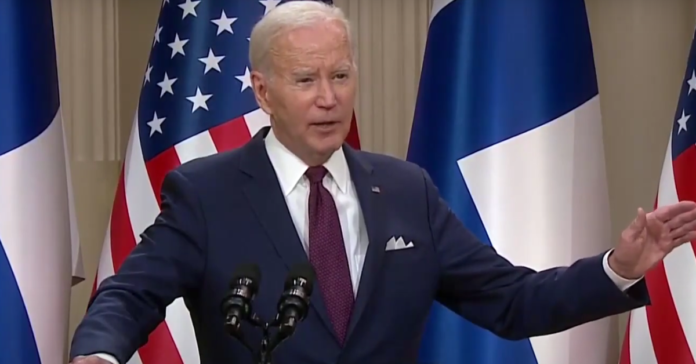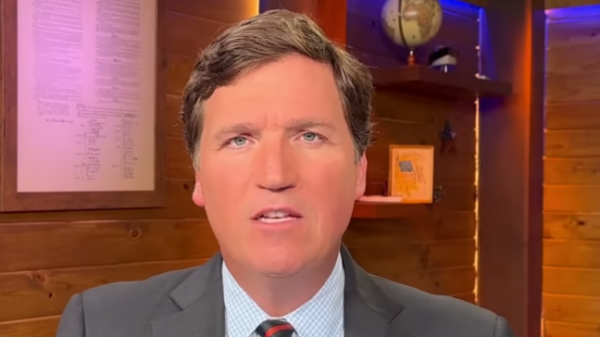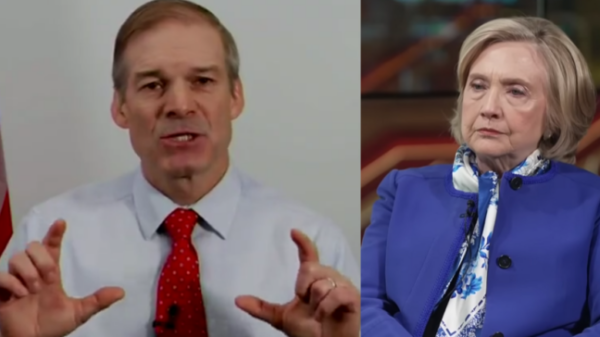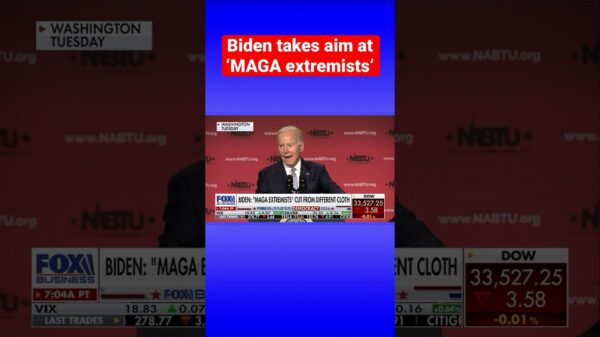Joe Biden’s State Department got busted pushing the Pakistani government to remove Imran Khan as prime minister because Khan did not support the war against Russian aggression in Ukraine.
The Intercept obtained a secret cable that showed Biden’s team using carrots and sticks in its push against Khan, promising better relations if Khan was removed and lonely isolation if he was not.
The cable details the meeting between State Department officials, including Assistant Secretary of State for the Bureau of South and Central Asian Affairs Donald Lu, and Pakistan’s ambassador to the U.S., Asad Majeed Khan.
According to The Intercept:
In the meeting, according to the document, Lu spoke in forthright terms about Washington’s displeasure with Pakistan’s stance in the conflict. The document quotes Lu saying that “people here and in Europe are quite concerned about why Pakistan is taking such an aggressively neutral position (on Ukraine), if such a position is even possible.
It does not seem such a neutral stand to us.” Lu added that he had held internal discussions with the U.S. National Security Council and that “it seems quite clear that this is the Prime Minister’s policy.”
Lu then bluntly raises the issue of a no-confidence vote: “I think if the no-confidence vote against the Prime Minister succeeds, all will be forgiven in Washington because the Russia visit is being looked at as a decision by the Prime Minister,” Lu said, according to the document.
“Otherwise,” he continued, “I think it will be tough going ahead.”
Lu warned that if the situation wasn’t resolved, Pakistan would be marginalized by its Western allies.
“I cannot tell how this will be seen by Europe but I suspect their reaction will be similar,” Lu said, adding that Khan could face “isolation” by Europe and the U.S. should he remain in office.
Asked about quotes from Lu in the Pakistani cable, State Department spokesperson Matthew Miller said, “Nothing in these purported comments shows the United States taking a position on who the leader of Pakistan should be.”
Miller said he would not comment on private diplomatic discussions.
The discussion concluded, according to the document, with the Pakistani ambassador expressing his hope that the issue of the Russia-Ukraine war would not “impact our bilateral ties.”
Lu told him that the damage was real but not fatal, and with Khan gone, the relationship could go back to normal.
“I would argue that it has already created a dent in the relationship from our perspective,” Lu said, again raising the “political situation” in Pakistan. “
us wait for a few days to see whether the political situation changes, which would mean that we would not have a big disagreement about this issue and the dent would go away very quickly.
Otherwise, we will have to confront this issue head on and decide how to manage it.”
The Pakistani ambassador responded by expressing frustration with the lack of engagement from U.S. leadership:
“This reluctance had created a perception in Pakistan that we were being ignored or even taken for granted.
“There was also a feeling that while the U.S. expected Pakistan’s support on all issues that were important to the U.S., it did not reciprocate.”
The day after the meeting Khan’s opponents in Parliament took the first step to remove Khan.
In May of this year, Imran Khan was arrested outside the High Court in the capital, Islamabad.
“Khan’s fate wasn’t sealed at the time that this meeting took place, but it was tenuous,” said Arif Rafiq, a non-resident scholar at the Middle East Institute and specialist on Pakistan.
“What you have here is the Biden administration sending a message to the people that they saw as Pakistan’s real rulers, signaling to them that things will better if he is removed from power.”
The Intercept obtained a leaked Pakistani document showing the U.S. threatened severe consequences if Imran Khan were to stay on as prime minister because of his neutrality on the Russian invasion of Ukraine. https://t.co/v8rD5gRX1U
— The Intercept (@theintercept) August 9, 2023






















